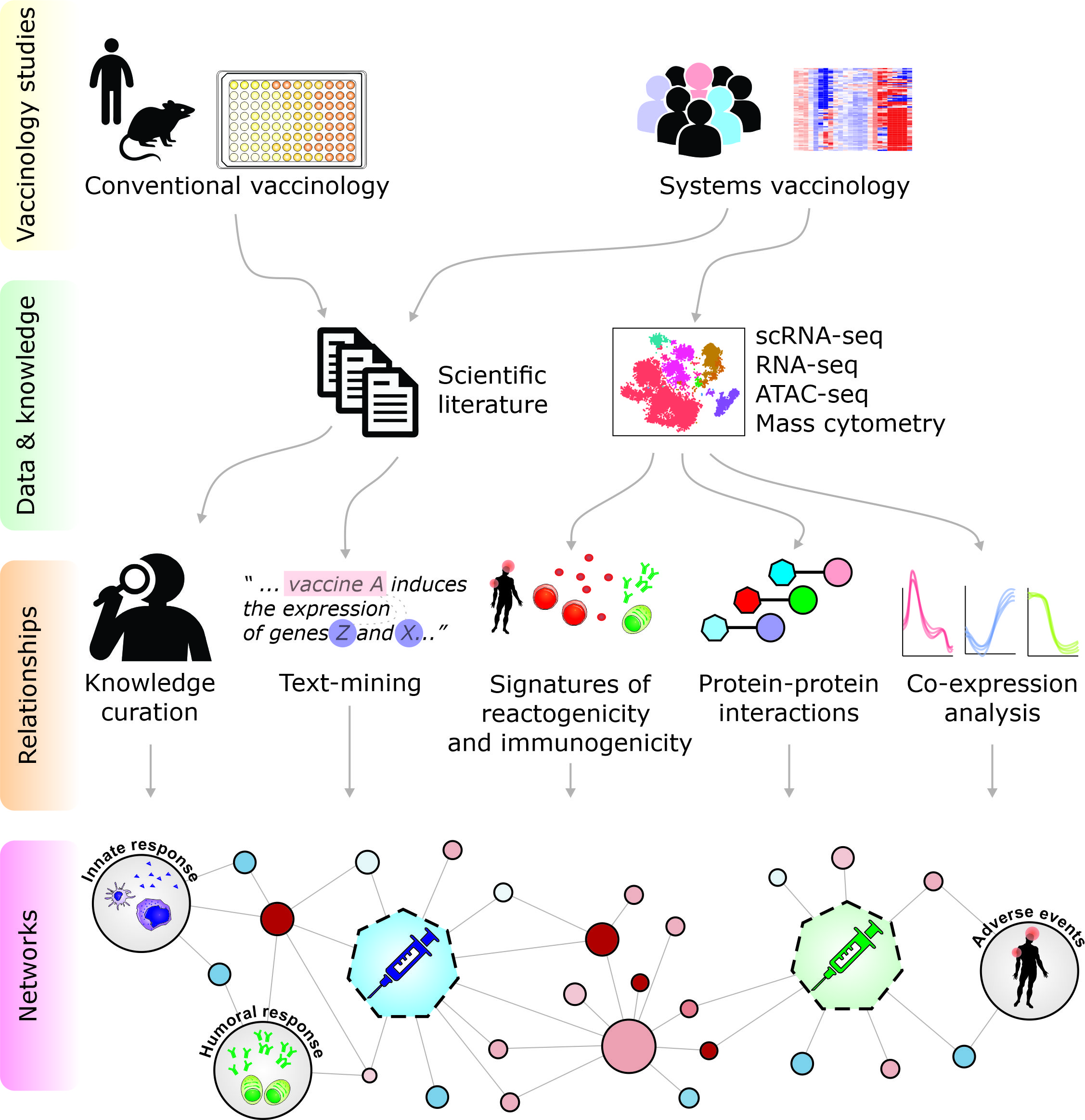Network vaccinology.
The structure and function of the immune system is governed by complex networks of interactions between cells and molecular components. Vaccination perturbs these networks, triggering specific pathways to induce cellular and humoral immunity. Systems vaccinology studies have generated vast data sets describing the genes related to vaccination, motivating the use of new approaches to identify patterns within the data. Here, we describe a framework called Network Vaccinology to explore the structure and function of biological networks responsible for vaccine-induced immunity. We demonstrate how the principles of graph theory can be used to identify modules of genes, proteins, and metabolites that are associated with innate and adaptive immune responses. Network vaccinology can be used to assess specific and shared molecular mechanisms of different types of vaccines, adjuvants, and routes of administration to direct rational design of the next generation of vaccines.
Authors
Rachel Creighton; Viviane Schuch; Alysson H Urbanski; Jeevan Giddaluru; Andre G Costa-Martins; Helder I Nakaya
External link
Publication Year
Publication Journal
Associeted Project
Network & Precision Medicine
Lista de serviços
-
RASL11A, member of a novel small monomeric GTPase gene family, is down-regulated in prostate tumors.RASL11A, member of a novel small monomeric GTPase gene family, is down-regulated in prostate tumors.
-
Splice variants of TLE family genes and up-regulation of a TLE3 isoform in prostate tumors.Splice variants of TLE family genes and up-regulation of a TLE3 isoform in prostate tumors.
-
Concepts on Microarray Design for Genome and Transcriptome AnalysesConcepts on Microarray Design for Genome and Transcriptome Analyses
-
The iron stimulon of Xylella fastidiosa includes genes for type IV pilus and colicin V-like bacteriocins.The iron stimulon of Xylella fastidiosa includes genes for type IV pilus and colicin V-like bacteriocins.
-
Origins of the Xylella fastidiosa prophage-like regions and their impact in genome differentiation.Origins of the Xylella fastidiosa prophage-like regions and their impact in genome differentiation.
-
The role of prophage in plant-pathogenic bacteria.The role of prophage in plant-pathogenic bacteria.
-
Genetic control of immune response and susceptibility to infectious diseases.Genetic control of immune response and susceptibility to infectious diseases.
-
Building capacity for advances in tuberculosis research; proceedings of the third RePORT international meeting.Building capacity for advances in tuberculosis research; proceedings of the third RePORT international meeting.
-
São Paulo School of Advanced Sciences on Vaccines: an overview.São Paulo School of Advanced Sciences on Vaccines: an overview.
-
A reasonable request for true data sharing.A reasonable request for true data sharing.

